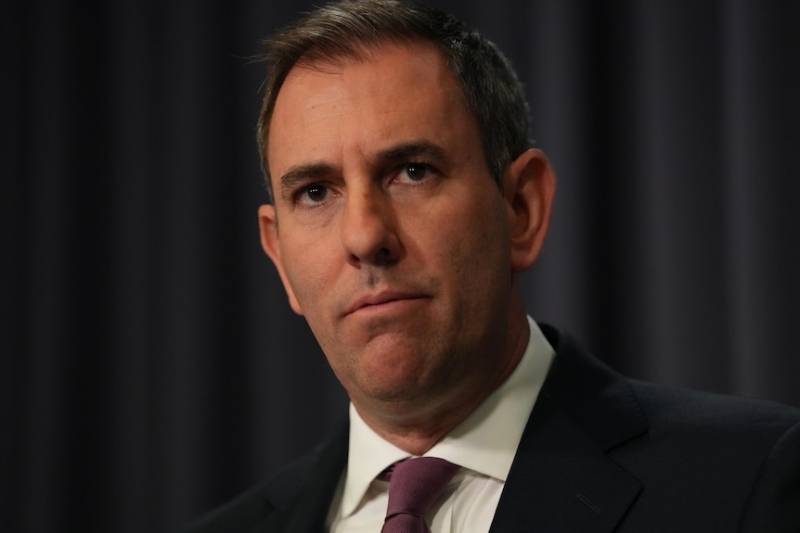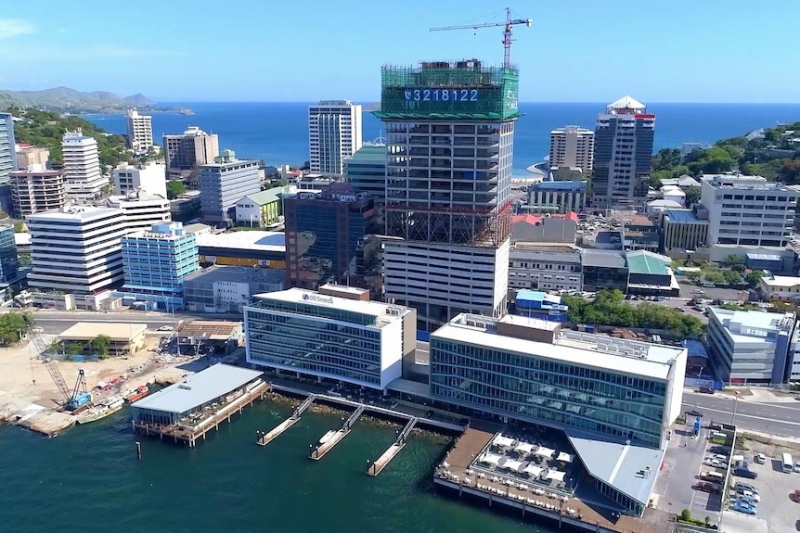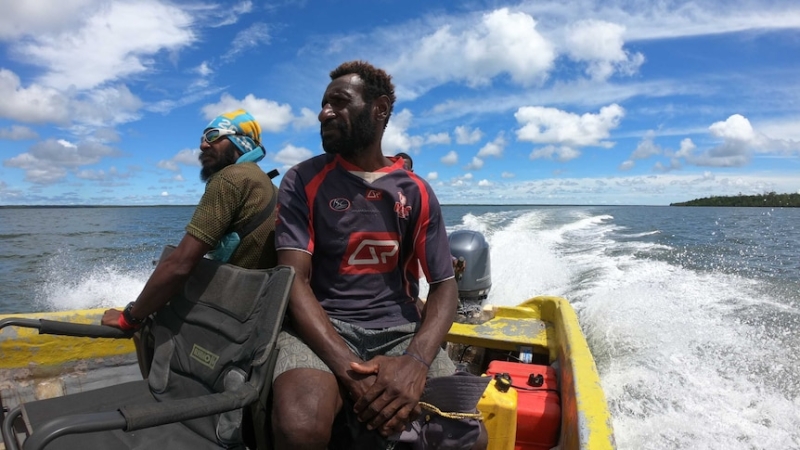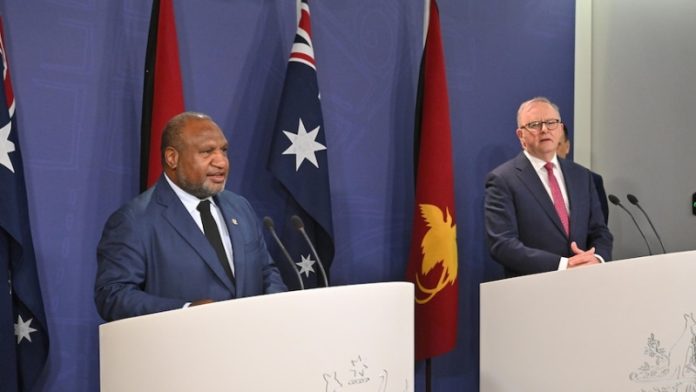Australia has provided over $3.1 billion to PNG since the COVID pandemic, reinforcing its role as the nation's largest bilateral lender. (AAP: Mick Tsikas)
In short:
Australia has provided Papua New Guinea with a $570 million loan, bringing total budget support to over $3.1 billion since 2020.
As part of the deal, PNG has agreed to tighten foreign investment screening and block economically unviable or high-risk projects.
What's next?
Analysts warn PNG's rising debt levels could become unsustainable, despite ongoing IMF-led economic reforms.
Papua New Guinea's government has promised not to push ahead with economically unviable infrastructure projects after Australia handed the cash-strapped Pacific nation a $570 million loan.
The loan is the fifth Australia has made to PNG since 2020, taking total budget support to more than $3.1 billion since the COVID pandemic and cementing Australia's position as PNG's largest bilateral lender.
Both countries quietly agreed to the loan in December last year, but it was only made public yesterday evening, when Treasury tabled a national interest statement in parliament.
The statement said that PNG's "security and stability is a fundamental Australian strategic interest" and helping PNG meet its budget shortfall would "support the continued funding of essential government services such as healthcare and education, support PNG's economic reform, and ongoing budget repair efforts."
The ABC has also been told that as part of the agreement, Papua New Guinea's Treasurer Ian Ling-Stuckey and Federal Treasurer Jim Chalmers have exchanged letters, with PNG agreeing to push ahead with a plan to screen foreign investment in infrastructure, and block projects that are economically unviable or carry national security risks.

PNG Treasurer Ian Ling-Stuckey and Australia's Jim Chalmers exchanged letters, with PNG agreeing to screen foreign investment and block risky infrastructure projects. (ABC News: Mark Moore)
PNG first said it would tighten screening processes during an annual high level ministerial meeting in June last year, with both countries saying they wanted to encourage "economically viable and secure" investments in the country.
Chinese investment into Papua New Guinea has surged over the past decade, particularly in the country's construction, retail and mining sectors.
But the federal government is wary of Chinese investment into PNG's critical infrastructure — including a 5,547-kilometre-long submarine optic cable connecting multiple cities that was built by Huawei — because of concerns Beijing could exploit the infrastructure for spying and cyber espionage.

The Noble Centre, the tallest building in Port Moresby, is one of many Chinese-led infrastructure projects in Papua New Guinea, reflecting China's broader influence in the Pacific region (Facebook: The Noble Centre)
In 2018, the federal government effectively blocked Huawei's bid to build a 4,700km cable network that would connect PNG and Solomon Islands to Australia by agreeing to fund an Australian company to build the cable instead.
The federal government has also been monitoring several other ambitious projects in PNG that have drawn Chinese investment or interest, including a Special Economic Zone in Ihu and a contentious but now dormant plan to build an industrial fishing park on the island of Daru.
The tiny PNG island in the middle of Australia-China tensions
Photo shows Two Papua New Guinean men sitting on a boat heading out to the sea.

Mihai Sora from the Lowy Institute said it wasn't yet clear exactly how the proposed new screening process in PNG would work, but he expected an increasing number of Australian officials would travel to the country to lend technical expertise and assistance.
"We don't know how they will define uneconomic projects, or national security risks, or what the consequences would be for falling foul of that," he said.
But he said the federal government would want to ensure the "compatibility and interoperability" of IT and critical infrastructure systems in Australia and the Pacific.
"Australia is building much closer digital links with PNG and other Pacific countries," he said.
"So it's reasonable to expect that Australia would want to see a level of security and transparency from PNG on critical infrastructure, so it can fit into Australian systems."
Loan reignites debate over debt sustainability
PNG and Australian ministers signalled last year that they wanted to taper off lending from Australia, saying there was a "declining need for budget support due to budget repair" and they would "examine if there were other ways of supporting PNG's fiscal reform efforts."
PNG's debt level remains below its official ceiling, and it has managed to reduce its budget deficit over the past two years.
But the government is continuing to grapple with revenue shortfalls and foreign exchange shortages.
Professor Stephen Howes, director of the Development Policy Centre at the Australian National University, said it was unusual to see Australia lending so heavily to a Pacific nation.
"Normally, [Australia] gives aid through grants, and so there's no debt involved. It's a gift. Whereas China does a lot of lending," Professor Howes said.

Professor Howes said PNG's rising debt is concerning but manageable with economic growth and fiscal discipline. (Supplied: ANU TV)
"China is, for many countries, an important creditor, but for Australia, it's the exception rather than the rule."
Professor Howes said the loans were, in part, driven by geopolitical competition in the region.
"PNG has asked us for these loans. If we don't give them, you know, we're worried that … PNG will go to China," he said.
The budget support measures provided since 2020 also require PNG to participate in an economic reform program with the International Monetary Fund.
The objectives of the program are to reduce PNG's fiscal deficit and address critical shortages of foreign exchange that have impacted PNG since 2014.
"You need to judge the loan through the lens of whether that reform program is working," Professor Howes said.
"I think it's pretty disappointing that after the six loans and 10 years of this problem, the PNG government and the central bank are unable to eliminate this problem of FX shortages."
Australia's treasury department says the loan will not impose any costs on Australian taxpayers, but Professor Howes said that would only be the case if PNG pays it back.
"It is likely that the PNG government will pay it back. They haven't defaulted in the past," he said.
"But … I don't think you can't say it's at no cost to the taxpayer. If things go well, it'll be at no cost.
"But with this sort of sovereign lending, there is always a risk."

